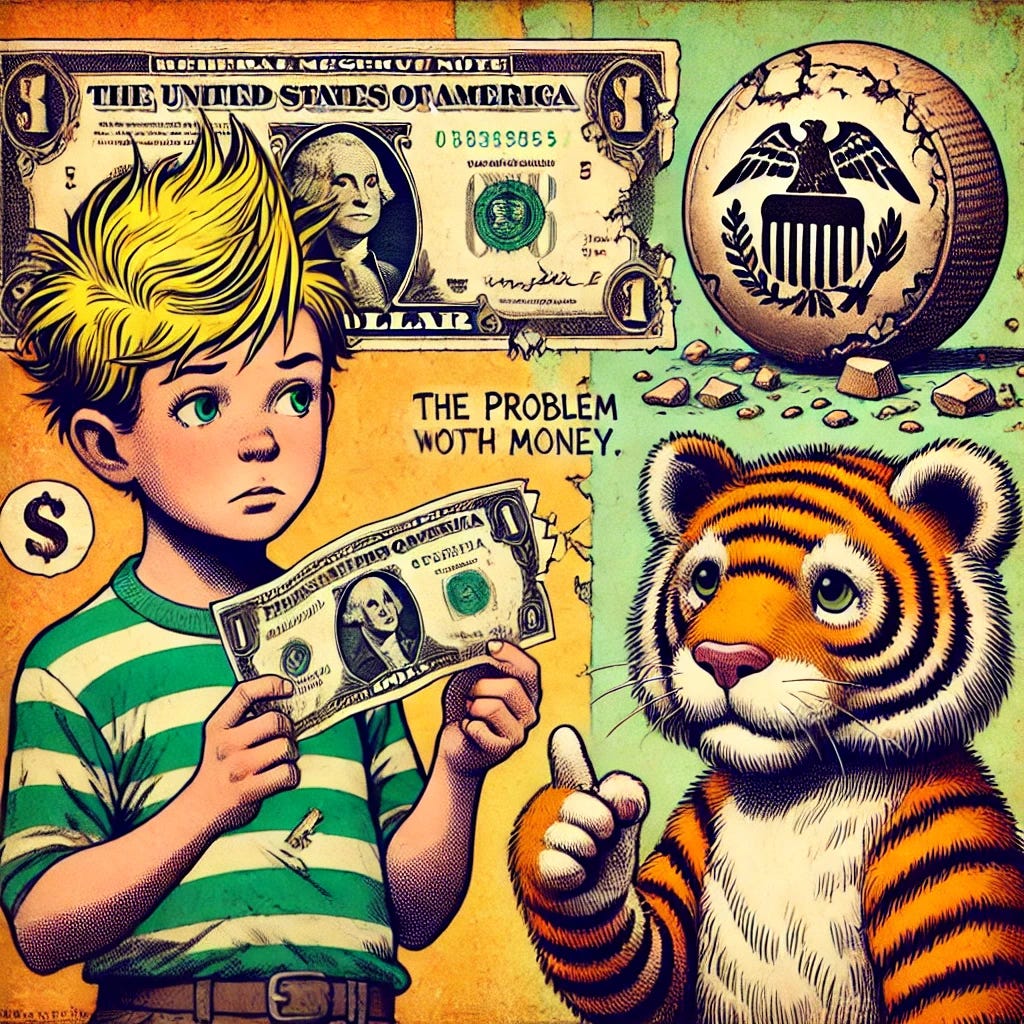The Great American Fire Sale
We Turned U.S. Steel Into a Clearance Sale Special for Foreign Buyers. Funny. This Helps Japan When They're On the Verge of Implosion.
Dear Fellow Traveler:
You know that feeling when you walk into a going-out-of-business sale?
The shelves are picked clean.
The good stuff's already gone.
You're left wondering how a company that sold overpriced spatulas to suburban moms for thirty years suddenly can't afford to keep the lights on.
Welcome to America right now.
Some people are taking victory laps that Nippon Steel bought U.S. Steel (X) for $14.9 billion.
No…
This isn't some bold vote of confidence in American manufacturing.
This is the continued Fire Sale of American assets.
"Investment"? More Like Extraction
When foreign buyers talk about "investing" in America…
I’m skeptical…
This seems more like the extraction of cash flow.
Remember Chicago's parking meter mess?
In 2008, the city sold 75 years of parking revenue to foreign investors for $1.15 billion.
The money vanished faster than free pizza in a college dorm, but Chicagoans are still feeding quarters to machines that funnel cash to Abu Dhabi for the next seventy years.
That's not an investment. That's a payday loan at the city level.
Instead of your paycheck getting grabbed, it's your great-grandkids' parking spots.
This is the new American economic model.
Sell tomorrow's lunch money to pay for today's Happy Meal.
How We Became the World's Favorite ATM
Here's how we got into this mess.
Step 1: The world needed dollars, so we printed them in large quantities.
Think "college kid with a fake ID at an open bar" levels of fun.
BRRRRR… Money printer… BRRRRRRR….
Step 2: We borrowed, spent, and exported our currency for actual stuff—TVs, cars, and steel… You know, the things you can drop on your foot.
Step 3: The trade deficit exploded. American industry didn't just shrink. It went on the South Beach Diet and never came back.
Step 4: The Fed kept rates lower in that Zero-Interest-Rate era. They pumped cheap money into an economy… accelerating its financialization while hollowing out manufacturing here in the United States.
The dollar's reserve status gave us decades of buying time. But now the bill is due, and it's not payable in more dollars.
It's payable in factories, companies, ports, and anything else that does something.
This isn't global trade.
This is a garage sale where we forgot to keep the house.
Panic Dressed Up as Strategy
Don't let the talking heads fool you.
The Nippon-U.S. Steel deal isn't proof of American industrial strength.
U.S. Steel had about as many good options as a BlackBerry executive in 2015.
Legacy costs and shrinking margins, combined with a strong dollar that eviscerates U.S. manufacturing, made leadership more desperate to cash out.
The Japanese saw a chance to pick up an American industrial icon for less than some Silicon Valley unicorns spend on office snacks.
Politicians who spent decades begging for "foreign investment" are now clutching their pearls… but still don’t understand how the dollar works and how our reserve status crushes the middle class.
They see everything through the lens of right and left… instead of up and down.
This is what happens when your biggest export is currency, not steel.
Welcome to the Great American Fire Sale.
Everything Must Go.
How to Profit While Rome Burns (Investment Advice for the End Times)
Look, this isn't just a sob story about American industrial decline. It's a roadmap.
While everyone else argues about whether this is good or bad, smart money is figuring out how to position itself in a world where America is for sale and foreign buyers are bringing suitcases full of hard currencies.
Here's your survival guide:
1. Own Gold (Because Even Smart Money Doesn't Trust Paper)
Gold is the ultimate "I told you so" asset.
While central bankers talk about the dollar's bright future, they're quietly hoarding gold like preppers stockpiling canned beans.
When confidence in paper money starts wobbling like a three-legged table, gold isn't just insurance. It's the life raft you wish you'd bought before the Titanic hit the iceberg.
2. Buy Smart Businesses and Assets (The Roaches of Capitalism)
Look for companies that turn a dollar of investment into several dollars of profit.
Look for high returns on invested capital, pricing power, and balance sheets stronger than a 100-proof milkshake. In a world of rising prices and declining buying power, these businesses are like roaches. They'll survive the economic nuclear winter while everyone else is checking their portfolio balance through their fingers.
3. Follow the Smart Money (Buy What the Big Funds Are Buying)
Foreign wealth funds didn't get rich by accident.
They target tangible assets: energy infrastructure, farmland, ports, logistics, utilities, and data centers.
We want anything that produces cash flow.
If Norwegian pension funds are buying American toll roads, you should too.
Seek assets that produce actual income.
Dividend stocks, infrastructure, commodities, and businesses that own their supply chains. These are the investments you want when the currency stinks.
The Bottom Line
The "Dollar Curse" is hollowing out America's industrial base and future.
We're losing factories and the ability to make things that matter. We aren’t going to make iPhones here… full stop.
And foreign buyers aren't coming to rescue us.
They're coming to pick through what's left.
If you want to keep your wealth while the Great American Fire Sale continues, remember the golden rule of distressed asset investing: own what's scarce, what's productive, and what the world's smartest money is quietly piling up while everyone else argues about trade policy on Twitter.
Remember…
Gold. Smart businesses. Real assets. Cash flow.
GSRC… what a terrible thing to remember…
Just say to yourself, Golden State Rec Council…
Gold. Smart Businesses. Real Assets. Cash Flow.
Never mind… that doesn’t work.
Just write it down, and send me a Christmas card.
Stay positive.
Garrett Baldwin






Mele Kalikimaka GB!!